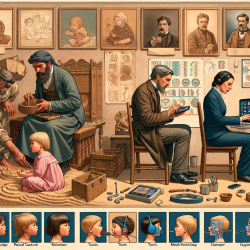As a speech-language pathologist, you are dedicated to providing the best outcomes for children. One way to ensure you are making data-driven decisions is by leveraging insights from scientific advisory committees (SACs). The research article, A Typology of Scientific Advisory Committees, offers a comprehensive look into the design and effectiveness of SACs. Here, we’ll explore how these insights can be applied to your practice.
What Are Scientific Advisory Committees?
Scientific advisory committees are groups of experts that provide evidence-based advice to decision-makers. The effectiveness of SACs is influenced by their design, which includes characteristics such as sector, level of operation, permanence, target audience, autonomy, and nature of advice.
Key Characteristics of SACs
- Sector: SACs operate in various fields including health, education, and environment.
- Level of Operation: They can function at international, national, or subnational levels.
- Permanence: SACs can be temporary (ad hoc) or permanent (standing).
- Target Audience: The advice can be aimed at internal or external decision-makers.
- Autonomy: SACs can operate independently or be embedded within organizations.
- Nature of Advice: The advice can be descriptive (informative) or prescriptive (recommendatory).
Applying SAC Insights to Your Practice
Understanding the structure and function of SACs can help you implement evidence-based practices more effectively. Here’s how:
1. Emphasize Evidence-Based Practice
Just as SACs provide scientifically backed advice, ensure your therapy methods are grounded in the latest research. This will not only improve outcomes but also enhance the credibility of your practice.
2. Adapt to Different Levels of Operation
Whether you are working at a school district level or a national level, understanding the different operational levels of SACs can help you tailor your approaches to fit the specific context and needs of your audience.
3. Balance Permanence and Flexibility
Incorporate both long-term strategies and short-term interventions in your therapy plans. This dual approach can help address immediate issues while also working towards long-term goals.
4. Target Your Audience
Understand who your primary stakeholders are—whether they are parents, teachers, or administrators—and tailor your communication and intervention strategies accordingly.
5. Maintain Autonomy
While collaboration is key, maintaining a level of autonomy in your practice can help ensure that your decisions are based on the best available evidence, free from external pressures.
6. Offer Descriptive and Prescriptive Advice
Provide both types of advice to your stakeholders. Descriptive advice helps them understand the current situation, while prescriptive advice offers actionable steps they can take.
Encouraging Further Research
The study of SACs is still evolving, and there is much to learn about their design and effectiveness. By staying informed about the latest research, you can continue to improve your practice and outcomes for children.
To read the original research paper, please follow this link: A Typology of Scientific Advisory Committees.










